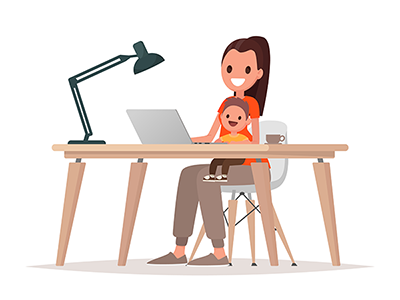6 Common Myths About Child Support
Child support can be a difficult subject to discuss, let alone understand. There are many assumptions on the subject, ranging from who can apply to when the support ends. The Department of Economic Security Division of Child Support Services (DCSS) provides services to parents and caretakers who receive child support, as well as parents who pay child support, and assist everyone involved to understand and ensure children are receiving the support they need.
Let’s review 6 common myths and misconceptions:
Only the mother of the child, or the parent who has custody, can apply for services from DCSS.
DCSS accepts applications from either parent, or caretakers. Fathers wishing to establish paternity, or caretakers who have had the child in their physical custody for 30 consecutive days can apply for child support services.

Child Support does not have to be paid if the paying parent doesn’t see the child.
Unless the child support order is modified, it is a monthly obligation that must be paid regardless of parenting time or visitation.

When the child turns 18, the child support obligation ends.
If a child is still in high school at the age of 18, child support will continue until the child graduates from high school but not past the 19th birthday for Arizona child support orders. If the order is from another state, Arizona will follow the emancipation law of the state where the order was entered. When all the children have emancipated, the current monthly obligation may stop. However, any balance still owed on a case can be collected.

When establishing support, DCSS can also help with issues of custody, parenting time, and visitation.
By law, DCSS is not allowed to be involved in custody, parenting time or visitation issues. Contact needs to be made with a private attorney, Clerk of Court or an Arizona court for more information about issues of custody, parenting time, and visitation.

DCSS knows when the parent who is paying child support no longer has a job.
The paying parent must make DCSS aware of any job changes. DCSS is not aware of this information unless it is disclosed. Once disclosed, DCSS may review the case to see if it is eligible for a modification.

If the paying parent quits his/her job, child support payments will be lowered because he/she doesn’t have the ability to pay.
If the paying parent quits their job to avoid their child support obligation, the courts will typically recognize this aversion tactic and not decrease the child support payment obligation. The court reasons that both parents have a responsibility to financially support the children and choosing to be unemployed to avoid paying is not an acceptable reason for modification.

By Isabella Neal

